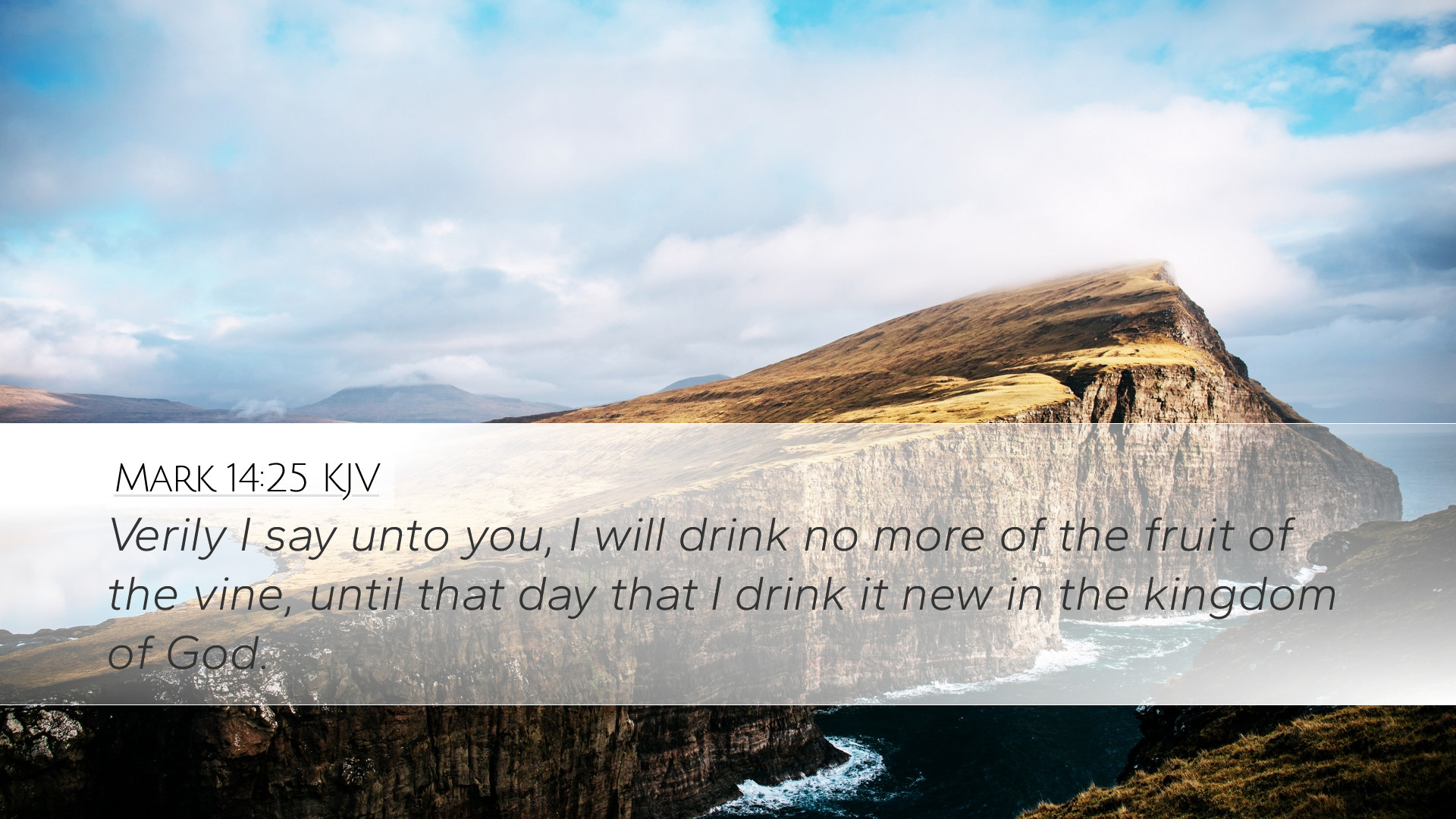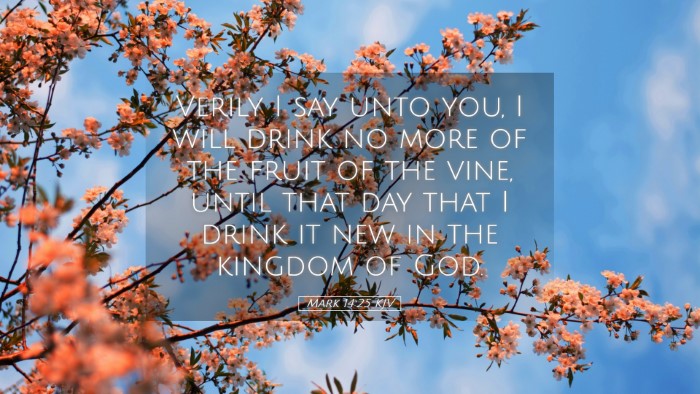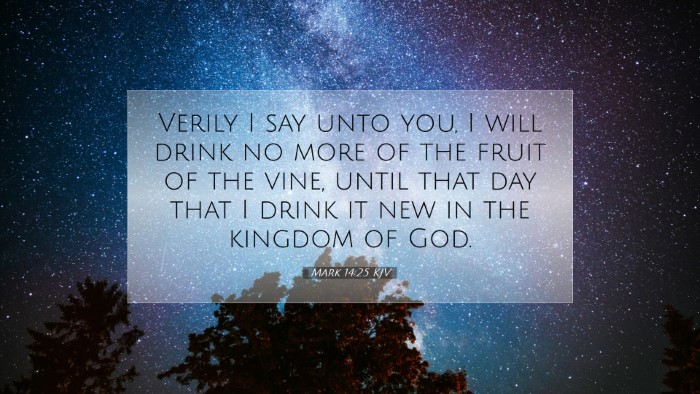Commentary on Mark 14:25
Bible Verse: "Verily I say unto you, I will drink no more of the fruit of the vine until that day that I drink it new in the kingdom of God."
Introduction
This verse is part of the narrative surrounding the Last Supper, where Jesus shares His final meal with His disciples before His crucifixion. This statement carries profound theological implications and offers insights into Jesus' mission and the eschatological hope of believers.
Theological Insights
This declaration by Jesus can be unpacked in several layers:
- Fulfillment of Prophecy: The reference to "the fruit of the vine" has deep roots in Jewish tradition. Wine symbolizes joy and celebration, often used in sacramental contexts. By stating He will not partake again until He drinks "it new in the kingdom of God," Jesus points to the messianic banquet foretold in prophetic literature (Isaiah 25:6).
- Abstinence as a Symbol: Jesus' abstinence from wine until that new age signifies a period of sorrow and anticipation. The Last Supper, overshadowed by His impending suffering, marks a transition from the old covenant to the new, embodying the significant theological shift that His death and resurrection would bring.
- Eschatological Hope: Jesus' words express the hope of a forthcoming kingdom. This hope is foundational for Christian eschatology, assuring believers that despite current trials, a joyous future awaits in communion with Christ. Albert Barnes emphasizes that this new drinking signifies not just enjoyment but a transformative experience in His eternal kingdom.
Historical Context
Understanding the Jewish Passover context enriches our comprehension of this verse. The Last Supper occurred during Passover, a time when Jews recalled their deliverance from Egypt. Cultic practices around wine during this feast added layers to Jesus' words—He was reinterpreting a familiar ritual.
As Adam Clarke notes, the “fruit of the vine” serves as a reminder of the covenant Israel had with God, a covenant that Jesus now fulfills and expands. His statements bridge the Old and New Testaments, inviting His followers to recognize the significance of this moment.
Comparative Commentary
Matthew Henry's Perspective
Matthew Henry notes that this verse can be seen in light of Jesus’ choice to forgo earthly pleasures for the sake of a greater spiritual reality. He mentions that though Jesus refrains from wine, it is a demonstration of the seriousness of His mission. Henry underscores the imminent suffering of Christ and how this abstinence reflects a theme of redemptive sacrifice.
Albert Barnes' Observations
Albert Barnes provides clarity on the “new” aspect of drinking wine in the kingdom, suggesting it represents a restored relationship between humanity and God. He interprets this new wine as being representative of the joys and intimate fellowship that will be experienced in the Kingdom of God. Barnes suggests that this hope of future fellowship drives Christian discipleship and perseverance in faith.
Adam Clarke's Insights
Adam Clarke elaborates on the Philological aspects, noting the inevitability of Jesus' drink in the Kingdom served as a metaphor for the richer, fuller experience of spiritual communion with Christ that awaits believers post-resurrection. This new wine metaphorically connotes the transformation and joyous restoration of all creation following Christ's redemptive work.
Application for Believers
Mark 14:25 encourages believers to anticipate the consummation of their faith. It acts as both a reminder and a promise. Christians today are called to live in light of this eschatological hope:
- Expectation and Anticipation: Believers should live with expectation for the fulfillment of God’s promises and rejoice in the hope of eternal communion with Christ.
- Cultivating Community: Just as Jesus initiated a covenant community with His disciples, modern Christians are called to foster community reflecting the love and sacrifice of Christ, thus embodying the kingdom of God on earth.
- Radical Sacrifice: Jesus’ refusal to partake in the vine serves as a model for sacrificial living. Believers are called to consider what they might willingly lay down for others and for the sake of the Kingdom.
Conclusion
Mark 14:25 serves as a profound reminder of Jesus' mission and the hope that undergirds the Christian faith. It indicates the transition from the old covenant to the new, emphasizing communal remembrance and shared hope among believers. The verse speaks not only of Jesus' sacrifice but also of the joyful expectation of His kingdom, inviting all to partake in this transformative reality of faith.


